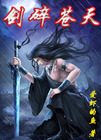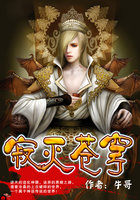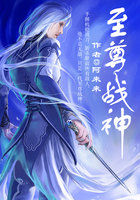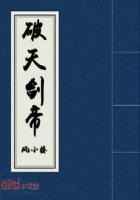If now we were to try to penetrate to the soul of Quasimodo through that thick, hard rind; if we could sound the depths of that badly constructed organism; if it were granted to us to look with a torch behind those non-transparent organs to explore the shadowy interior of that opaque creature, to elucidate his obscure corners, his absurd no-thoroughfares, and suddenly to cast a vivid light upon the soul enchained at the extremity of that cave, we should, no doubt, find the unhappy Psyche in some poor, cramped, and ricketty attitude, like those prisoners beneath the Leads of Venice, who grew old bent double in a stone box which was both too low and too short for them.
It is certain that the mind becomes atrophied in a defective body. Quasimodo was barely conscious of a soul cast in his own image, moving blindly within him.The impressions of objects underwent a considerable refraction before reaching his mind.His brain was a peculiar medium; the ideas which passed through it issued forth completely distorted.The reflection which resulted from this refraction was, necessarily, divergent and perverted.
Hence a thousand optical illusions, a thousand aberrations of judgment, a thousand deviations, in which his thought strayed, now mad, now idiotic.
The first effect of this fatal organization was to trouble the glance which he cast upon things. He received hardly any immediate perception of them.The external world seemed much farther away to him than it does to us.
The second effect of his misfortune was to render him malicious.
He was malicious, in fact, because he was savage; he was savage because he was ugly. There was logic in his nature, as there is in ours.
His strength, so extraordinarily developed, was a cause of still greater malevolence:“Malus puer robustus''says Hobbes.
This justice must, however be rendered to him. Malevolence was not, perhaps, innate in him.From his very first steps among men, he had felt himself, later on he had seen himself, spewed out, blasted, rejected.Human words were, for him, always a raillery or a malediction.As he grew up, he had found nothing but hatred around him.He had caught the general malevolence.He had picked up the weapon with which he had been wounded.
After all, he turned his face towards men only with reluctance; his cathedral was sufficient for him. It was peopled with marble figures, —kings, saints, bishops, —who at least did not burst out laughing in his face, and who gazed upon him only with tranquillity and kindliness.The other statues, those of the monsters and demons, cherished no hatred for him, Quasimodo.He resembled them too much for that.They seemed rather, to be scoffing at other men.The saints were his friends, and blessed him; the monsters were his friends and guarded him.So he held long communion with them.He sometimes passed whole hours crouching before one of these statues, in solitary conversation with it.If any one came, he fled like a lover surprised in his serenade.
And the cathedral was not only society for him, but the universe, and all nature beside. He dreamed of no other hedgerows than the painted windows, always in flower; no other shade than that of the foliage of stone which spread out, loaded with birds, in the tufts of the Saxon capitals; of no other mountains than the colossal towers of the church; of no other ocean than Paris, roaring at their bases.
What he loved above all else in the maternal edifice, that which aroused his soul, and made it open its poor wings, which it kept so miserably folded in its cavern, that which sometimes rendered him even happy, was the bells.He loved them, fondled them, talked to them, understood them.From the chime in the spire, over the intersection of the aisles and nave, to the great bell of the front, he cherished a tenderness for them all.The central spire and the two towers were to him as three great cages, whose birds, reared by himself, sang for him alone.Yet it was these very bells which had made him deaf; but mothers often love best that child which has caused them the most suffering.
It is true that their voice was the only one which he could still hear. On this score, the big bell was his beloved.It was she whom he preferred out of all that family of noisy girls which bustled above him, on festival days.This bell was named Marie.She was alone in the southern tower, with her sister Jacqueline, a bell of lesser size, shut up in a smaller cage beside hers.This Jacqueline was so called from the name of the wife of Jean Montagu, who had given it to the church, which had not prevented his going and figuring without his head at Montfaucon.In the second tower there were six other bells, and, finally, six smaller ones inhabited the belfry over the crossing, with the wooden bell, which rang only between after dinner on Good Friday and the morning of the day before Easter.So Quasimodo had fifteen bells in his seraglio; but big Marie was his favorite.
No idea can be formed of his delight on days when the grand peal was sounded. At the moment when the archdeacon dismissed him, and said, “Go!”he mounted the spiral staircase of the clock tower faster than any one else could have descended it.He entered perfectly breathless into the aerial chamber of the great bell; he gazed at her a moment, devoutly and lovingly; then he gently addressed her and patted her with his hand, like a good horse, which is about to set out on a long journey.He pitied her for the trouble that she was about to suffer.After these first caresses, he shouted to his assistants, placed in the lower story of the tower, to begin.They grasped the ropes, the wheel creaked, the enormous capsule of metal started slowly into motion.Quasimodo followed it with his glance and trembled.The first shock of the clapper and the brazen wall made the framework upon which it was mounted quiver.Quasimodo vibrated with the bell.
“Vah!”he cried, with a senseless burst of laughter. However, the movement of the bass was accelerated, and, in proportion as it described a wider angle, Quasimodo's eye opened also more and more widely, phosphoric and flaming.At length the grand peal began; the whole tower trembled; woodwork, leads, cut stones, all groaned at once, from the piles of the foundation to the trefoils of its summit.Then Quasimodo boiled and frothed; he went and came; he trembled from head to foot with the tower.The bell, furious, running riot, presented to the two walls of the tower alternately its brazen throat, whence escaped that tempestuous breath, which is audible leagues away.Quasimodo stationed himself in front of this open throat; he crouched and rose with the oscillations of the bell, breathed in this overwhelming breath, gazed by turns at the deep place, which swarmed with people, two hundred feet below him, and at that enormous, brazen tongue which came, second after second, to howl in his ear.
It was the only speech which he understood, the only sound which broke for him the universal silence. He swelled out in it as a bird does in the sun.All of a sudden, the frenzy of the bell seized upon him; his look became extraordinary; he lay in wait for the great bell as it passed, as a spider lies in wait for a fly, and flung himself abruptly upon it, with might and main.Then, suspended above the abyss, borne to and fro by the formidable swinging of the bell, he seized the brazen monster by the ear-laps, pressed it between both knees, spurred it on with his heels, and redoubled the fury of the peal with the whole shock and weight of his body.Meanwhile, the tower trembled; he shrieked and gnashed his teeth, his red hair rose erect, his breast heaving like a bellows, his eye flashed flames, the monstrous bell neighed, panting, beneath him; and then it was no longer the great bell of Notre-Dame nor Quasimodo:it was a dream, a whirlwind, a tempest, dizziness mounted astride of noise; a spirit clinging to a flying crupper, a strange centaur, half man, half bell; a sort of horrible Astolphus, borne away upon a prodigious hippogriff of living bronze.
The presence of this extraordinary being caused, as it were, a breath of life to circulate throughout the entire cathedral. It seemed as though there escaped from him, at least according to the growing superstitions of the crowd, a mysterious emanation which animated all the stones of Notre-Dame, and made the deep bowels of the ancient church to palpitate.It sufficed for people to know that he was there, to make them believe that they beheld the thousand statues of the galleries and the fronts in motion.And the cathedral did indeed seem a docile and obedient creature beneath his hand; it waited on his will to raise its great voice; it was possessed and filled with Quasimodo, as with a familiar spirit.One would have said that he made the immense edifice breathe.He was everywhere about it; in fact, he multiplied himself on all points of the structure.Now one perceived with affright at the very top of one of the towers, a fantastic dwarf climbing, writhing, crawling on all fours, descending outside above the abyss, leaping from projection to projection, and going to ransack the belly of some sculptured gorgon; it was Quasimodo dislodging the crows.Again, in some obscure corner of the church one came in contact with a sort of living chimera, crouching and scowling; it was Quasimodo engaged in thought.Sometimes one caught sight, upon a bell tower, of an enormous head and a bundle of disordered limbs swinging furiously at the end of a rope; it was Quasimodo ringing vespers or the Angelus.Often at night a hideous form was seen wandering along the frail balustrade of carved lacework, which crowns the towers and borders the circumference of the apse; again it was the hunchback of Notre-Dame.Then, said the women of the neighborhood, the whole church took on something fantastic, supernatural, horrible; eyes and mouths were opened, here and there; one heard the dogs, the monsters, and the gargoyles of stone, which keep watch night and day, with outstretched neck and open jaws, around the monstrous cathedral, barking.And, if it was a Christmas Eve, while the great bell, which seemed to emit the death rattle, summoned the faithful to the midnight mass, such an air was spread over the sombre front that one would have declared that the grand portal was devouring the throng, and that the rose window was watching it.And all this came from Quasimodo.Egypt would have taken him for the god of this temple; the Middle Ages believed him to be its demon:he was in fact its soul.
To such an extent was this disease that for those who know that Quasimodo has existed, Notre-Dame is to-day deserted, inanimate, dead. One feels that something has disappeared from it.That immense body is empty; it is a skeleton; the spirit has quitted it, one sees its place and that is all.It is like a skull which still has holes for the eyes, but no longer sight.
Chapter4 The Dog and his Master
Nevertheless, there was one human creature whom Quasimodo excepted from his malice and from his hatred for others, and whom he loved even more, perhaps, than his cathedral:this was Claude Frollo.
The matter was simple; Claude Frollo had taken him in, had adopted him, had nourished him, had reared him. When a little lad, it was between Claude Frollo's legs that he was accustomed to seek refuge, when the dogs and the children barked after him.Claude Frollo had taught him to talk, to read, to write.Claude Frollo had finally made him the bellringer.Now, to give the big bell in marriage to Quasimodo was to give Juliet to Romeo.
Hence Quasimodo's gratitude was profound, passionate, boundless; and although the visage of his adopted father was often clouded or severe, although his speech was habitually curt, harsh, imperious, that gratitude never wavered for a single moment. The archdeacon had in Quasimodo the most submissive slave, the most docile lackey, the most vigilant of dogs.When the poor bellringer became deaf, there had been established between him and Claude Frollo, a language of signs, mysterious and understood by themselves alone.In this manner the archdeacon was the sole human being with whom Quasimodo had preserved communication.He was in sympathy with but two things in this world:Notre-Dame and Claude Frollo.
There is nothing which can be compared with the empire of the archdeacon over the bellringer; with the attachment of the bellringer for the archdeacon. A sign from Claude and the idea of giving him pleasure would have sufficed to make Quasimodo hurl himself headlong from the summit of Notre-Dame.It was a remarkable thing—all that physical strength which had reached in Quasimodo such an extraordinary development, and which was placed by him blindly at the disposition of another.There was in it, no doubt, filial devotion, domestic attachment; there was also the fascination of one spirit by another spirit.It was a poor, awkward, and clumsy organization, which stood with lowered head and supplicating eyes before a lofty and profound, a powerful and superior intellect.Lastly, and above all, it was gratitude.Gratitude so pushed to its extremest limit, that we do not know to what to compare it.This virtue is not one of those of which the finest examples are to be met with among men.We will say then, that Quasimodo loved the archdeacon as never a dog, never a horse, never an elephant loved his master.
Chapter5 More about Claude Frollo
In 1482, Quasimodo was about twenty years of age; Claude Frollo, about thirty-six. One had grown up, the other had grown old.
Claude Frollo was no longer the simple scholar of the college of Torch, the tender protector of a little child, the young and dreamy philosopher who knew many things and was ignorant of many. He was a priest, austere, grave, morose; one charged with souls; monsieur the archdeacon of Josas, the bishop's second acolyte, having charge of the two deaneries of Montlhéry, and Chateaufort, and one hundred and seventy-four country curacies.He was an imposing and somber personage, before whom the choir boys in alb and in jacket trembled, as well as the machicots, and the brothers of Saint-Augustine and the matutinal clerks of Notre-Dame, when he passed slowly beneath the lofty arches of the choir, majestic, thoughtful, with arms folded and his head so bent upon his breast that all one saw of his face was his large, bald brow.















